“Candelilla Wax” has been added to your cart. View cart
Reviews (0)
Be the first to review “Camelina” Cancel reply
Shipping & Delivery
Related products
Candelilla Wax
Candelilla wax is a natural vegetable wax derived from the leaves of the candelilla shrub, scientifically known as Euphorbia cerifera. It is primarily produced in northern Mexico and the southwestern United States. Candelilla wax is obtained through a process that involves harvesting the leaves, grinding them into a powder, and then boiling the powder to extract the wax.
Candelilla wax is characterized by its yellowish-brown color and a hard, brittle texture. It is composed mainly of hydrocarbons, esters, and fatty acids. One of its key components is the hydrocarbon called cerotine, which gives the wax its unique properties. It has a melting point ranging from 68 to 73 degrees Celsius (154 to 163 degrees Fahrenheit).
This wax is widely used in various industries, including cosmetics, pharmaceuticals, food, and household products. In cosmetics, it is employed as a natural alternative to beeswax or petroleum-based waxes in the formulation of lip balms, lotions, creams, and other skincare products. Its emollient and protective properties help to provide a smooth texture, enhance product stability, and improve moisture retention.
Furthermore, candelilla wax finds applications in the food industry as a coating or glazing agent for candies, chewing gum, and other confectionery products. It is also utilized in the production of candles, polishes, adhesives, and coatings due to its excellent film-forming and water-repellent qualities.
Overall, candelilla wax is a versatile and sustainable natural wax with various desirable properties, making it a valuable ingredient in numerous commercial products.
Cetyl alcohol
Cetyl alcohol is a fatty alcohol with the chemical formula CH3(CH2)15OH. It is a waxy substance that is used in a variety of industries, including cosmetics, personal care products, and pharmaceuticals. Cetyl alcohol is commonly derived from vegetable oils such as coconut or palm oil, and is often used as an emulsifier, thickener, or lubricant in formulations such as lotions, creams, and ointments. It is also sometimes used as a surfactant, meaning it helps to dissolve other substances and improve their absorption.
Coffee Butter
KSh0.01
Coffee butter is a creamy, spreadable substance made from coffee beans or coffee oil that resembles traditional butter in texture and consistency. It is typically produced by combining coffee extract or coffee-infused oil with a solid fat, such as coconut oil or cocoa butter, through a process called emulsification. The resulting coffee butter often retains the aroma and flavor of coffee, making it a popular ingredient in culinary applications and beauty products. It can be used as a spread, added to baked goods, incorporated into desserts, or utilized in skincare formulations for its potential moisturizing and antioxidant properties.
Glycerin 250 kg Drum Food Grade
Glycerin, also known as glycerol, is a colorless, odorless, viscous liquid that is sweet-tasting and non-toxic. It is a type of alcohol with three hydroxyl (OH) groups, and is commonly used in various industries such as pharmaceuticals, cosmetics, food, and personal care products. Glycerin has numerous applications, including as a solvent, humectant, emollient, and lubricant, among others. It can be derived from both plant and animal sources, and is also produced as a byproduct of soap and biodiesel manufacturing.
Isopropyl palmitate
Isopropyl palmitate is a synthetic compound that is derived from isopropyl alcohol and palmitic acid. It is commonly used as an emollient and thickening agent in cosmetic and personal care products. Isopropyl palmitate helps to enhance the texture and spreadability of formulations, leaving the skin feeling smooth and moisturized. It is often used in creams, lotions, moisturizers, and various skincare products.
Lanolin Anhydrous 50kg
Lanolin Anhydrous USP refers to a high-quality, refined, and purified substance derived from the natural waxy secretion of sheep's wool. It is processed to remove impurities, water, and other components, resulting in a pure form of lanolin. Lanolin itself is a complex mixture of esters, alcohols, and fatty acids, and the anhydrous USP grade ensures it contains minimal to no water content. This refined lanolin is commonly used in various cosmetic and pharmaceutical products for its emollient, moisturizing, and protective properties, serving as a skin-conditioning agent and helping to soothe and hydrate the skin

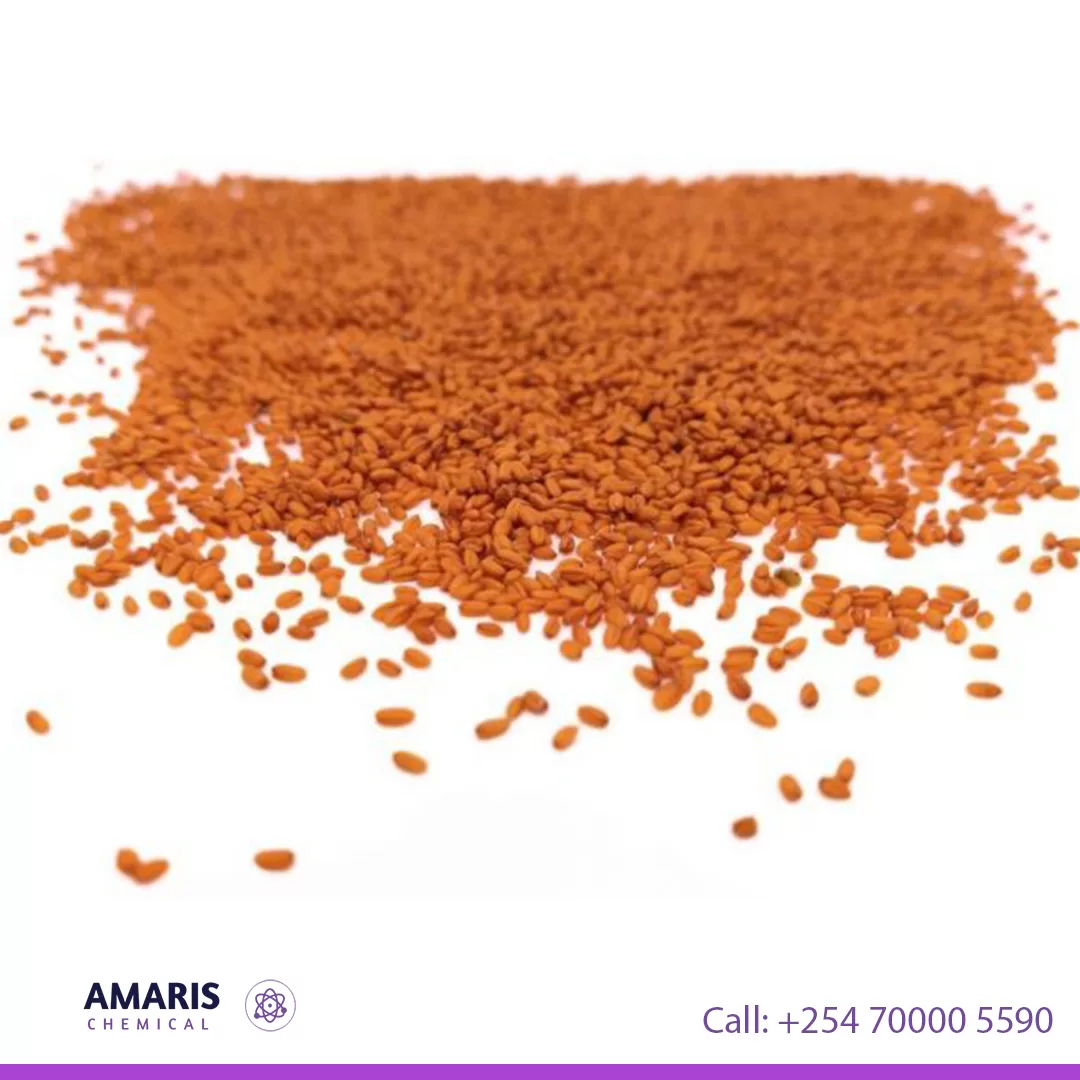
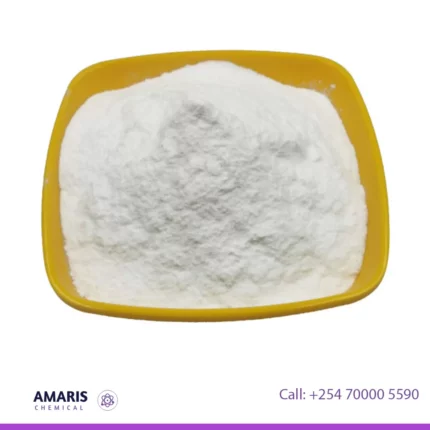
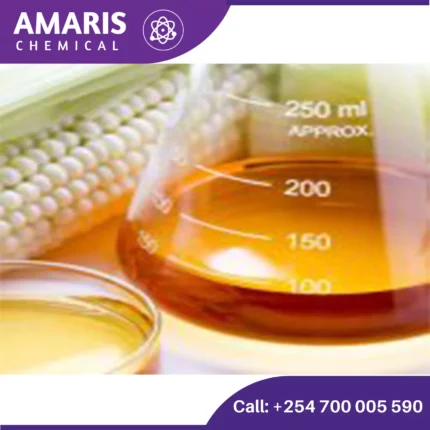
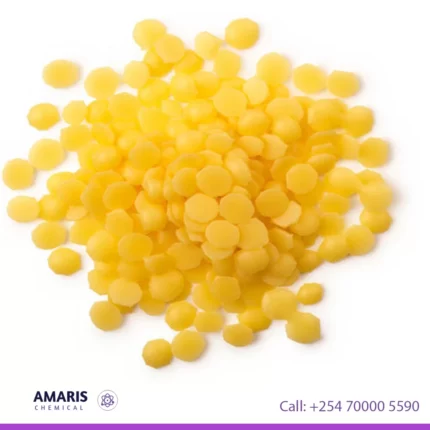
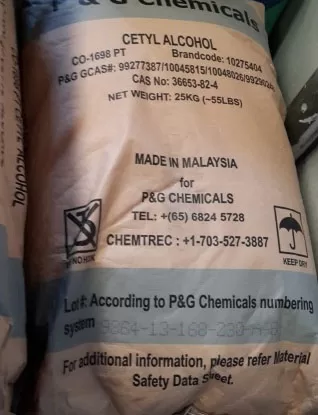
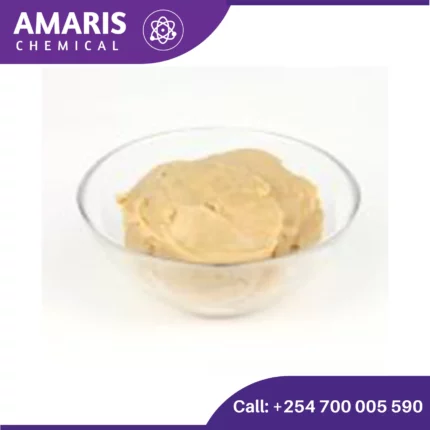
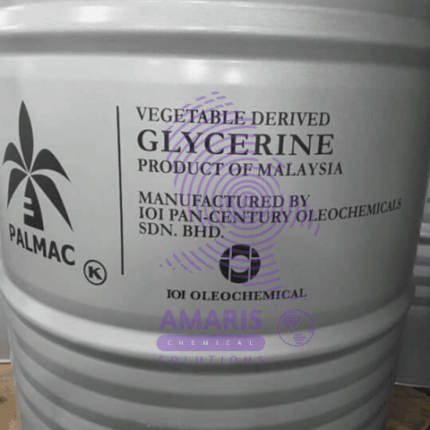
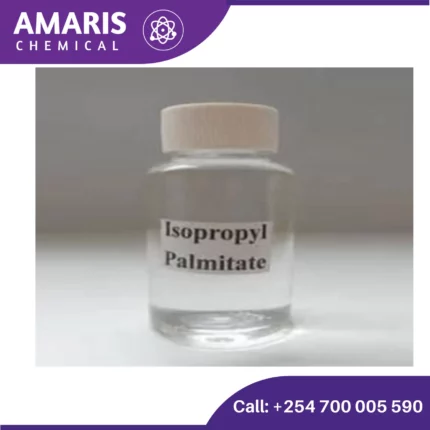
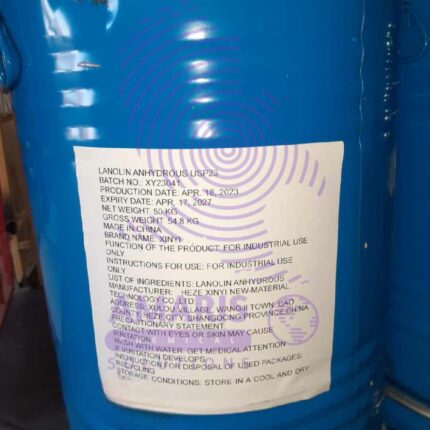
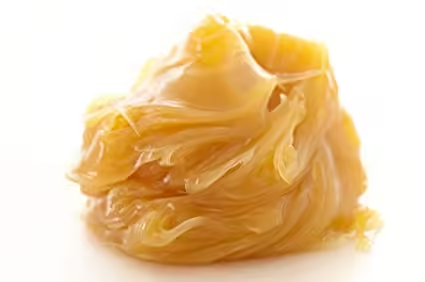
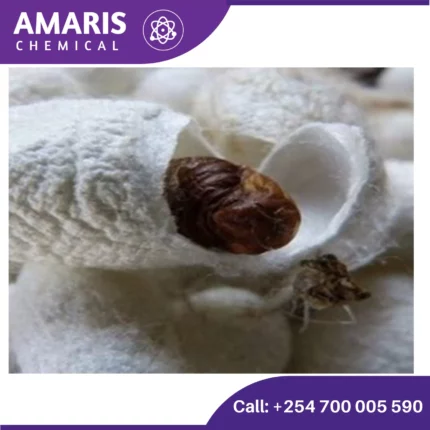
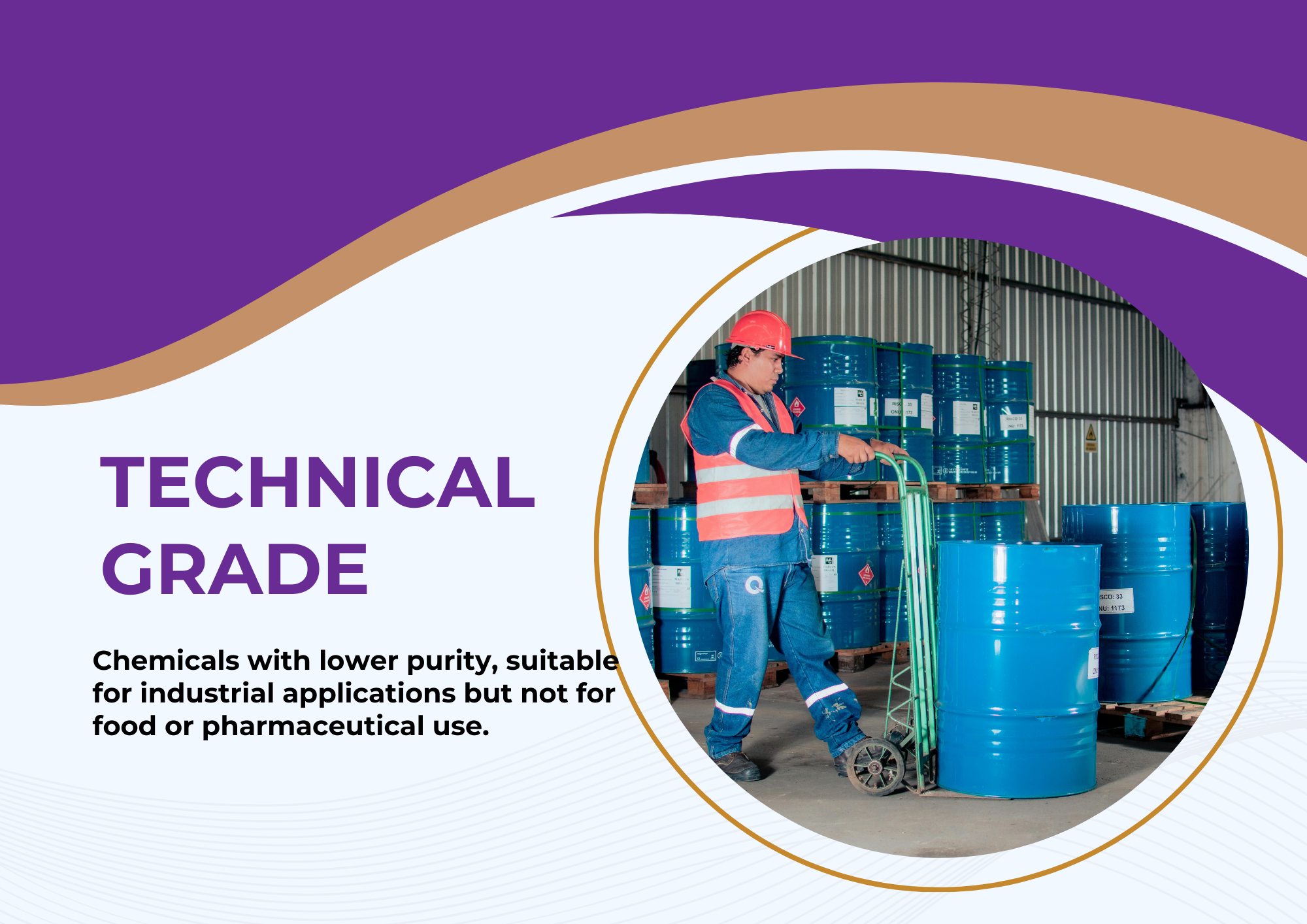
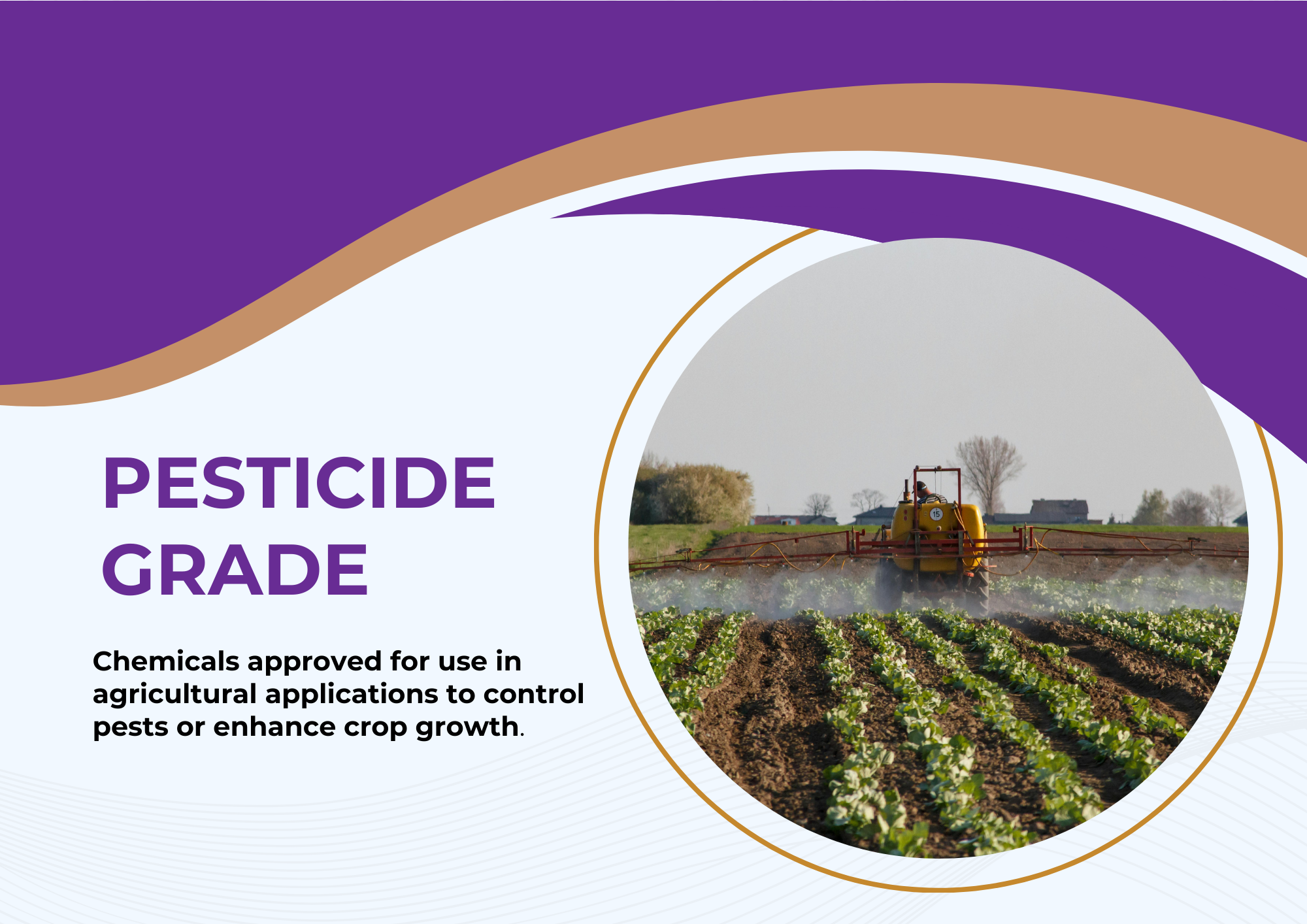


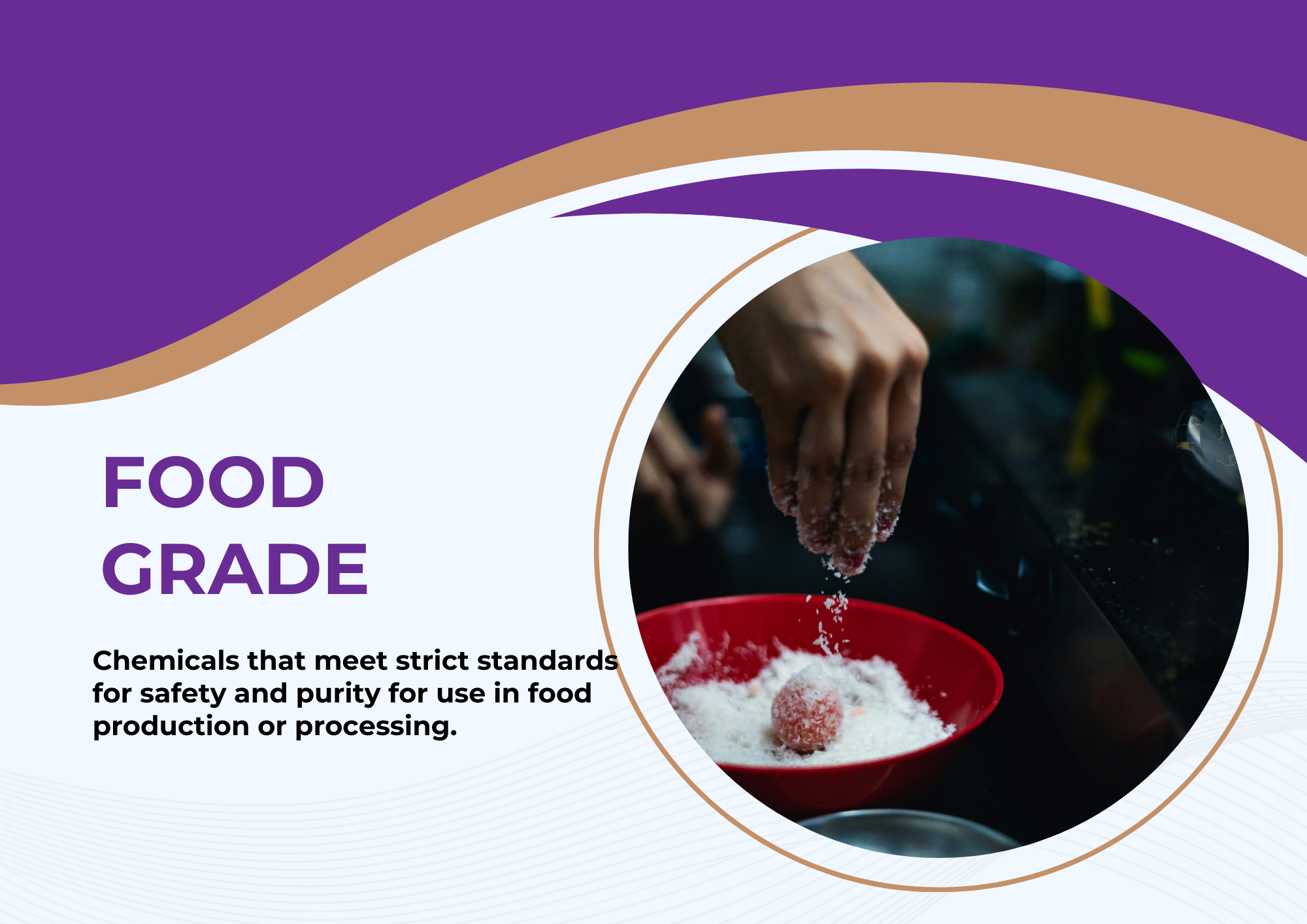

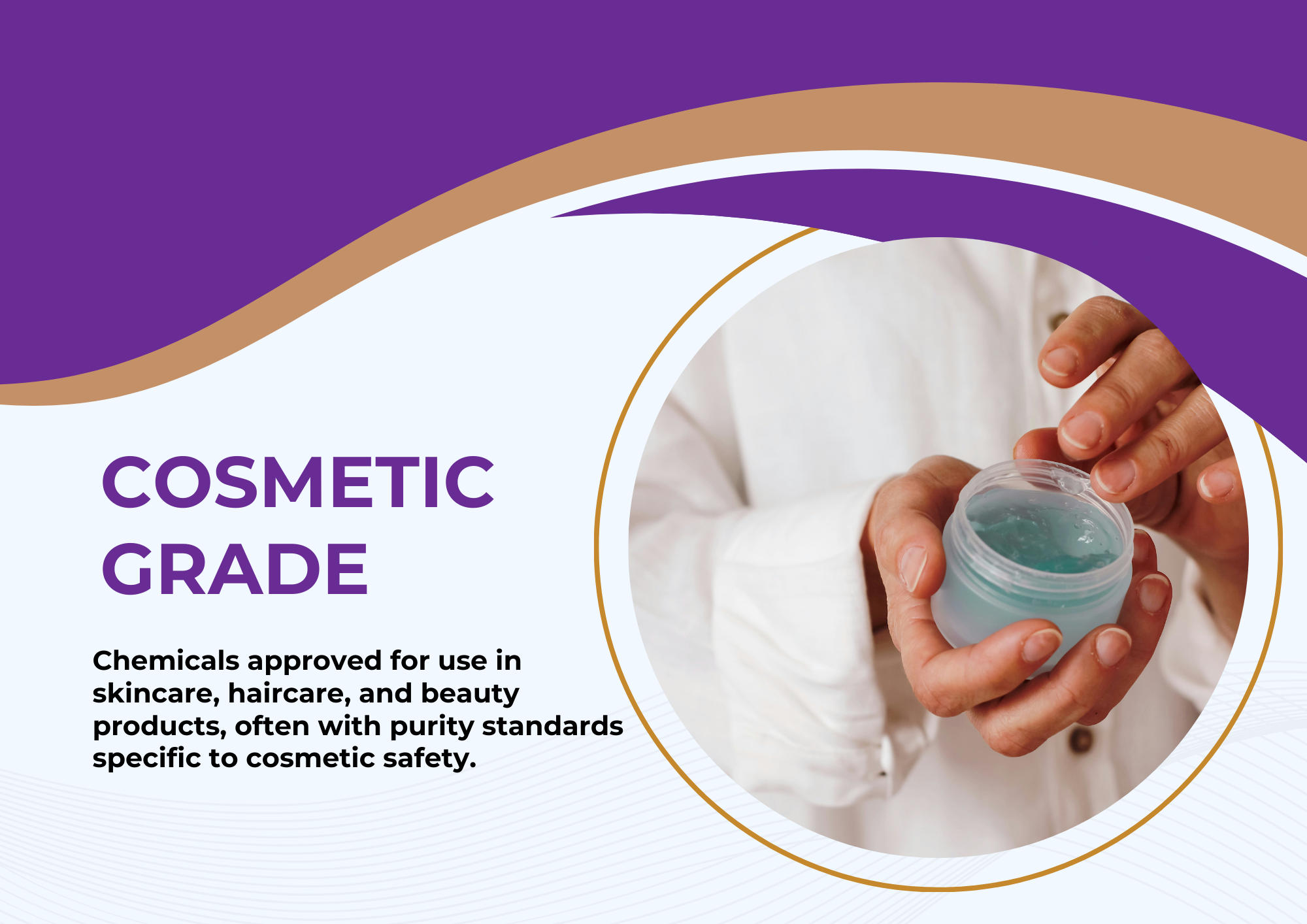
Reviews
There are no reviews yet.